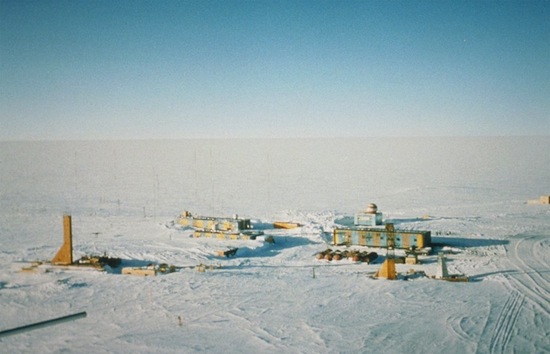Russian Scientists Claim New Kind of Bacterial Life Found in Lake Vostok
Russian researchers working on samples from Lake Vostok — a subglacial lake in Antarctica sealed away for eons by more than two miles of ice — say they have found signs of a wholly new kind of bacterial life in water samples taken from the lake. It’s a pretty impressive claim, if true, and one could quiet concerns raised late last year the lake may have been entirely devoid of life — not to mention meaning new chapters in microbiology textbooks. Now we just have to wait and see if this bold announcement holds water.
The bacteria, which was recovered from ice samples taken in May 2012, just a few months after the lake had been breached, appears to have very little in common with known bacteria, and researchers haven’t been able to find any genetic relatives to it thus far. Early reports indicate that the DNA of the organism is only 86% similar to other known forms of DNA, which, if accurate, would make it a pretty alien form of life. According to Sergei Bulat, a geneticist at the St. Petersburg Institute of Nuclear Physics:
“After putting aside all possible elements of contamination, DNA was found that did not coincide with any of the well-known types in the global database….We are calling this life form unclassified and unidentified.”
Clearly, this is exciting news, but it should be taken with a whole spoonful of salt right now. While the results gathered by the Russian researchers are intriguing, they’re also untested, and have yet to be presented to colleagues elsewhere for review. We want to believe, but until some more of the facts are released — or existing claims are confirmed by independent parties — calling whatever has been discovered here a new or alien form of life is premature.
(via PhysOrg, image courtesy of NOAA)
- Devoid of life my Aunt Fanny!
- Researchers are only now getting good, clean samples from Vostok
- Here’s the timeline on this momentous project
Have a tip we should know? [email protected]
